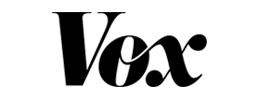Related

Using data from a recent survey of cigarette smokers in California, James Prieger of Pepperdine and Jonathan Kulick — Senior Research Scholar at the Marron Institute — examined the issues of tax evasion and illicit markets for cigarettes in a pair of two new working papers.
Tax Evasion and Illicit Cigarettes in California: Part I – Survey Evidence on Current Behavior
Abstract
Data from a novel online survey of 5,000 English-speaking adult cigarette smokers in California in advance of a recent increase in the state’s cigarette excise tax indicate that slightly more than one-quarter of that population engaged in some legal tax-avoiding behavior in the previous month, while nearly one-fifth illegally evaded taxes. (The two behaviors overlapped substantially.) Candor-inducing indirect questioning via the item count technique substantially increased those figures. Smokers who roll their own cigarettes, e-cigarette users, younger smokers, and those with more income and education are all more likely to engage in at least some of the suspect market behaviors examined. There is a much lower incidence of counterfeit product and sales of single cigarettes. This suggests that the tax increase may lead to significant amounts of adaptive behavior by smokers that will tend to reduce the intended health benefits of that policy change.
Tax Evasion and Illicit Cigarettes in California: Part II – Smokers’ Intended Responses to a Tax Increase
Abstract
We examine recent survey data from California to investigate smokers’ intended responses to an increase in cigarette excise taxes rates, including tax avoidance and the economic crimes of tax evasion and illicit trade in tobacco products (ITTP). We estimate how tax avoidance, tax evasion, and ITTP might change in response to a recent tax increase. We examine how such intended behaviors vary across demographic groups and how they are related to factors pertaining to the cost of engaging in ITTP. Half of smokers intend to act in ways that undermine, at least partially, the public health rationale for raising tobacco taxes. On the other hand, 73.5% intend to reduce their nicotine use or substitute the use of less harmful delivery systems for cigarette smoking.
Tile photo by Mathew MacQuarrie.
Please fill out the information below to receive our e-newsletter(s).
*Indicates required.